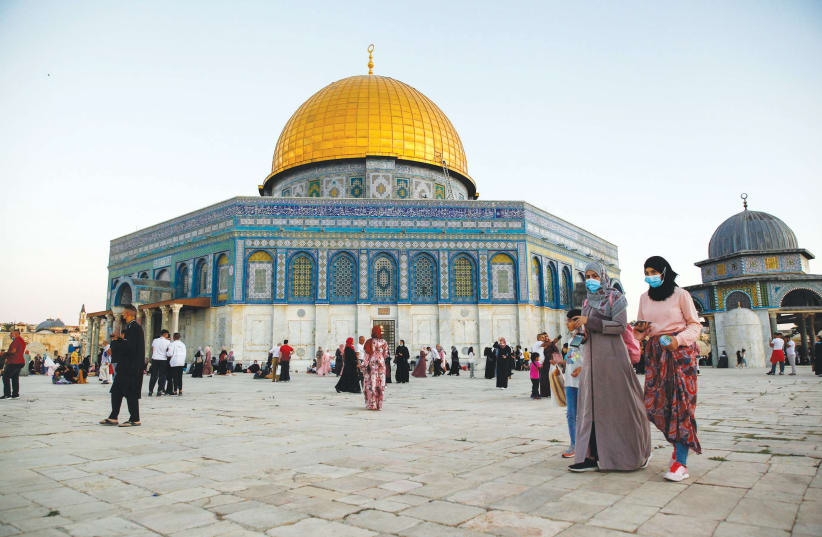Jordan is growing increasingly worried about reports suggesting that Israel has offered Saudi Arabia control over the Islamic holy sites in Jerusalem, including Haram Al-Sharif/Temple Mount, Jordanian and Palestinian officials said on Thursday.
The recent secret meeting between Prime Minister Benjamin Netanyahu and Saudi Crown Prince Mohammed bin Salman has increased fears in Jordan that the kingdom may lose its status as custodian of the Jerusalem holy sites, the officials said.
The issue dates back to 1924, when the Supreme Muslim Council, the highest Muslim body in charge of Muslim community affairs in Mandatory Palestine, accepted Hussein bin Ali (Sharif of Mecca) as custodian of Al-Aqsa Mosque.
In the 1994 peace treaty with Jordan, Israel committed to “respect the present special role of the Hashemite Kingdom of Jordan in Muslim Holy shrines in Jerusalem.” Israel also pledged that when negotiations on the permanent status will take place, it will give high priority to the Jordanian historical role in these shrines.
The Wakf Department that oversees Muslim sites in Jerusalem is controlled by the Jordanian government.
In 2013, the Palestinian Authority also recognized Jordan’s role through an agreement signed between PA President Mahmoud Abbas and King Abdullah II.
In recent weeks, however, the Jordanians have received “indications” that Israel, backed by the US administration, was considering granting the Saudis some form of representation in the Jerusalem-based Wakf Department.
“Jordan will not allow anyone to undermine its status as the exclusive custodian of the holy sites,” said a Jordanian diplomat. “We expect Israel to honor the peace treaty with Jordan.
The official warned that any attempt to undermine Jordan’s role would have serious repercussions on the kingdom’s relations with Israel.
A Palestinian official in Ramallah confirmed that the Jordanians were concerned about the possibility that Israel may “change the status quo at the Al-Aqsa Mosque compound.” According to the official, Abbas, who met earlier this week with King Abdullah II, emphasized that the Palestinians were opposed to any change of the “legal and historic” status of Jordan in Jerusalem.
“Israel is desperate to establish relations with Saudi Arabia,” the official explained. “Apparently, Netanyahu has been trying to allure the Saudis by offering them some form of control over Al-Aqsa Mosque.”
Jordanian Foreign Minister Ayman Safadi, who met on Thursday with Foreign Minister Gabi Ashkenazi at Allenby Bridge, said he “stressed the need to stop all provocative measures in the Al-Aqsa Mosque/Haram Al-Sharif.” Safadi called on Israel to “respect the existing legal and historical status,” reference to the Hashemite’s exclusive custodianship of the holy site.
Jordan, he added, “will continue to make every possible effort to preserve the existing historical and legal status and protect the Arab, Islamic and Christian identity of Jerusalem and its sanctities.”
The Jordanian minister said he also stressed “the need for Israel to stop all measures that undermine the chances of achieving a just peace on the basis of the two-state solution that embodies the independent Palestinian state with occupied Jerusalem as its capital on the June 4, 1967 lines.”
Safadi called for the resumption of the peace process between Israel and the Palestinians to achieve a two-state solution.
He said that he also discussed with Ashkenazi a number of issues between Jordan and Israel, including water, lifting restrictions on Jordanian exports to the West Bank.
